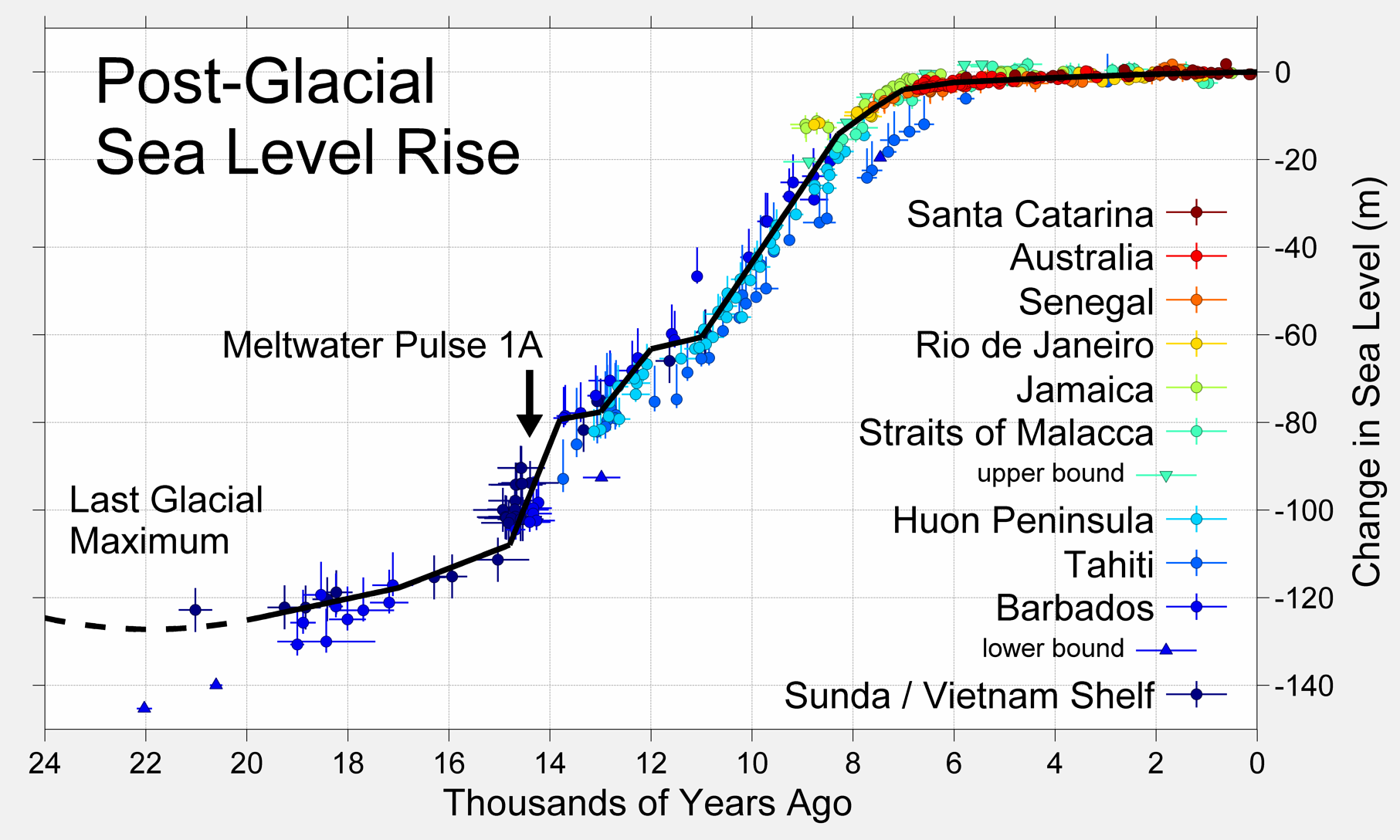Old Rocks
Diamond Member
Global sea levels could rise by more than three metres – over half a metre more than previously thought – this century alone, according to a new study co-authored by a University of Southampton scientist.
An international team including Sybren Drijfhout, Professor in Physical Oceanography and Climate Physics, looked at what might happen if carbon dioxide emissions continue unabated.
Using new projections of Antarctic mass loss and a revised statistical method, they concluded that a worst-case scenario of a 2.5 to three-metre sea level rise was possible by 2100.
Professor Drijfhout said: "It might be an unlikely scenario, but we can't exclude the possibility of global sea levels rising by more than three metres by the year 2100.
"Unabated global warming will lead to sea-level rise of many metres – possibly more than ten metres – within a few centuries, seriously threatening many cities all over the world that are built in low-lying river deltas. This will also seriously affect the coastline of the UK."
The research – published this month in Environmental Research Letters – is consistent with the National Oceanic and Atmospheric Administration's (NOAA) recent adjustment of its possible future high-end sea-level rise from two to 2.5 metres.
However, the new study integrated different model estimates with a new statistical method, whereas the NOAA estimate relied on expert judgment.
Recent observation and modelling studies have shown the future melt of Antarctica might happen dramatically faster than previously thought.
Sea levels could rise by more than three metres, shows new study
Seems we started with maybe a 10 inch rise, and now we are looking at possibly over 10 feet of sea level rise. Guess we will find out, as the dingleberries are going to prevent anything being done to alleviate the rise in GHGs.
An international team including Sybren Drijfhout, Professor in Physical Oceanography and Climate Physics, looked at what might happen if carbon dioxide emissions continue unabated.
Using new projections of Antarctic mass loss and a revised statistical method, they concluded that a worst-case scenario of a 2.5 to three-metre sea level rise was possible by 2100.
Professor Drijfhout said: "It might be an unlikely scenario, but we can't exclude the possibility of global sea levels rising by more than three metres by the year 2100.
"Unabated global warming will lead to sea-level rise of many metres – possibly more than ten metres – within a few centuries, seriously threatening many cities all over the world that are built in low-lying river deltas. This will also seriously affect the coastline of the UK."
The research – published this month in Environmental Research Letters – is consistent with the National Oceanic and Atmospheric Administration's (NOAA) recent adjustment of its possible future high-end sea-level rise from two to 2.5 metres.
However, the new study integrated different model estimates with a new statistical method, whereas the NOAA estimate relied on expert judgment.
Recent observation and modelling studies have shown the future melt of Antarctica might happen dramatically faster than previously thought.
Sea levels could rise by more than three metres, shows new study
Seems we started with maybe a 10 inch rise, and now we are looking at possibly over 10 feet of sea level rise. Guess we will find out, as the dingleberries are going to prevent anything being done to alleviate the rise in GHGs.






